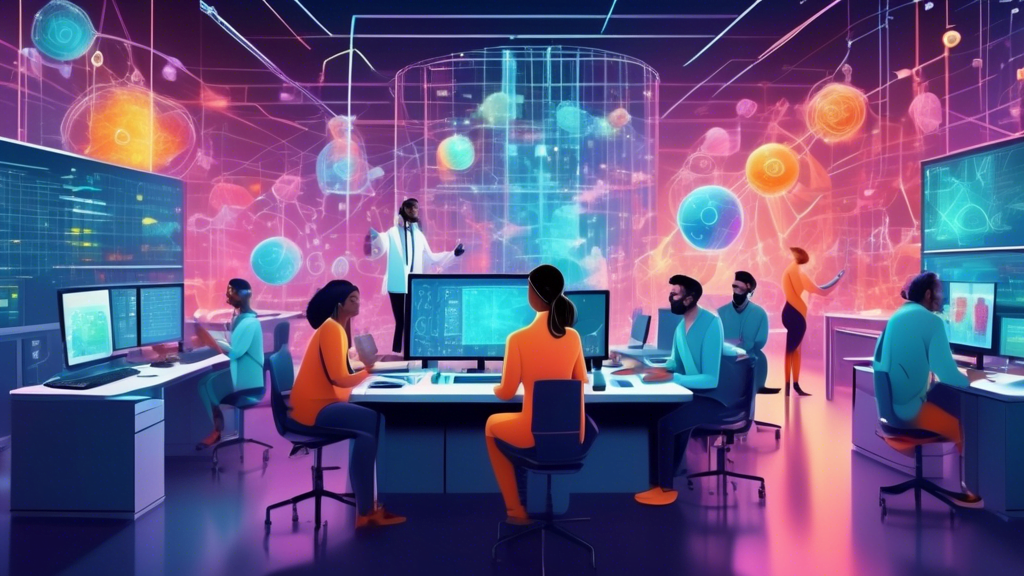The Unseen Companion: How AI Sneaks into Our Everyday Tech
Open Source AI: Let me kick this off with a little story. I was planning a road trip last summer, typing erratic, excited messages to a friend about spots to hit. In less than a minute, my phone buzzes, and what pops up? A curated playlist titled ‘Road Trip Vibes’ and a weather update for the scenic route I’d mentioned. That got me thinking – is my phone reading my thoughts? Well, not exactly, but close enough!
Open Source AI: What’s Really Going on Here?
Have you ever wondered how AI is crafting your playlists or filtering through your endless streams of emails? It’s intriguing how embedded AI has become in our day-to-day tech without most of us realizing its pervasive role. From smart responses in emails to tailored social media feeds and intelligent home devices that adjust to your behavior, AI technologies are the unsung heroes (or villains, depending on your point of view) of our digital experience.
Read about: Understanding Machine Learning In Artificial Intelligence
Open Source AI: AI in Smartphones More than Meets the Eye
Smartphones are perhaps the most personal tech gadget for most of us. They’re personal assistants, entertainers, gatekeepers of our digital memories, and much more, thanks to AI. Remember how I told you about my phone suggesting that playlist? That’s the handiwork of machine learning algorithms, analyzing my text inputs, music preferences, and even my location to make useful — sometimes eerily accurate — suggestions.
Isn’t it fascinating how your phone seems to know what you need before even you do? While sometimes, it feels like a breach of privacy, it cannot be denied that these features can be incredibly convenient. But let’s not forget to chuckle over some classic AI blunders. Ever had a voice assistant call your boss instead of your barber with the oddly similar name? Yep, me too.
Open Source AI: Everyday Gadgets and Their AI Underpinnings
It’s not just smartphones. Think about your smart speakers, your fitness trackers, and even your vacuum cleaners. These gadgets use AI to learn your schedule, your fitness goals, and even your apartment’s layout. Quite resourceful, right?
How about your online shopping trips? Ever noticed how those ads ‘somehow’ know you were just looking for a new pair of shoes? That’s AI working behind the scenes, analyzing your browsing habits and purchasing history to personalize advertisements.
Read about Open Source Generative AI models
Best AI Open Source: Optimizing Your Experience with AI
Integrating Open Source AI framework offers convenience maximizing its benefits without compromising privacy can be a tightrope walk. Here are a few tips to enhance your AI interaction:
- Customize your settings: Dive into the settings section of your device to adjust what data you want to share. It’s okay to keep some things to yourself!
- Update regularly: Software updates often enhance AI capabilities and security features, making your devices smarter and safer.
- Explore AI features: Many gadgets have hidden features that can be unlocked by asking your device or exploring forums dedicated to your particular model.
Open Source AI continues to amuse us with its mix-ups and completely misses the mark sometimes, its integration into everyday technology mostly stands out as a beacon of convenience and personalized experience. So, the next time your phone suggests the perfect playlist or your smart speaker misinterprets your dinner recipe request, take a moment to marvel at AI’s role in it all. And maybe laugh a little too!
Open Source AI: Additional Sources
- Responsible AI:
- https://www.licenses.ai/
- The 2023 State of Open Source Report confirms security as a top Issue:
- https://blog.opensource.org/the-2023-state-of-open-source-report-confirms-security-as-top-issue
